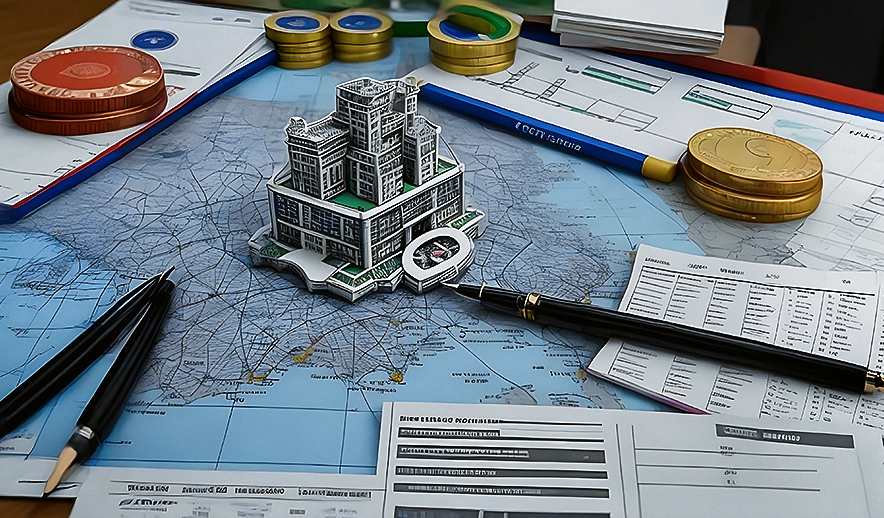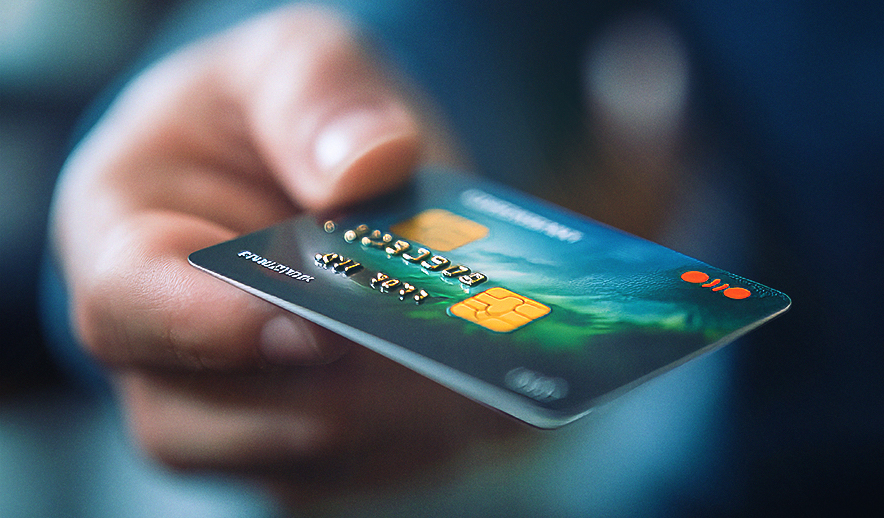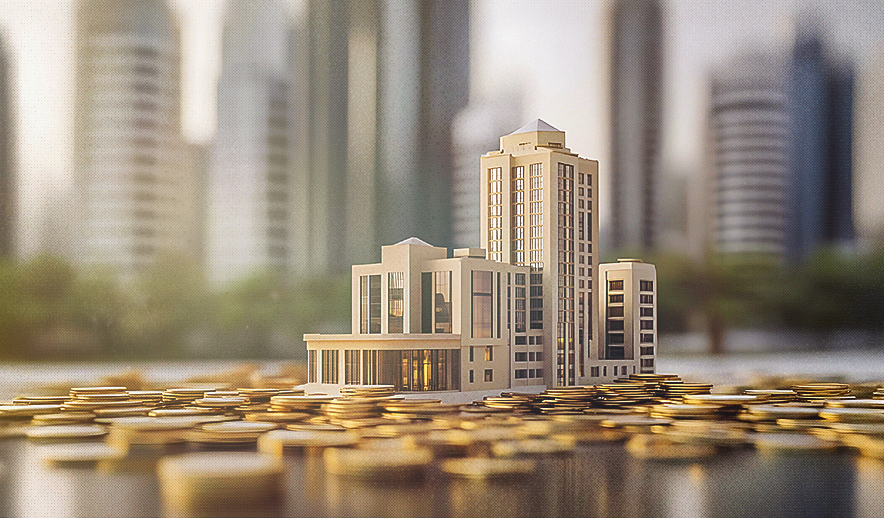Purchasing a home is a monumental decision, and in a vibrant and fast-growing country like the United Arab Emirates (UAE), it represents more than just an investment—it’s about establishing roots in one of the world’s most dynamic real estate markets. While many aspire to own property in prestigious cities like Dubai or Abu Dhabi, the journey to homeownership requires careful consideration and preparation.
This article explores the key factors that indicate when you’re truly ready to purchase a home in the UAE, helping you navigate both the financial and personal aspects of this exciting venture.
1. Financial Readiness for Buying a Home in the UAE
In the UAE, real estate is a significant investment, and being financially prepared is crucial. While property prices in Dubai, Abu Dhabi, and other emirates vary depending on location, the cost of home loan in the UAE can be substantial but manageable with the right planning.
Saving for a Down Payment
In the UAE, the down payment required for expatriates typically ranges from 20% to 25% of the property value. UAE nationals may benefit from lower down payments, around 15%. It’s essential to have this amount saved, as lenders in the UAE are strict with down payment requirements. Being able to put down a significant sum ensures that you can access competitive mortgage rates and potentially lower monthly payments.
Emergency Fund for Unexpected Costs
While the UAE offers a tax-free income, homeownership comes with additional costs such as maintenance, repairs, and service fees (especially in apartment complexes or gated communities). Having a robust emergency fund to cover unexpected expenses—ideally three to six months’ worth of living expenses—provides peace of mind and ensures you won’t be financially burdened by sudden costs.
Mortgage Eligibility and Debt-to-Income Ratio
The UAE’s mortgage market is highly competitive, but banks will assess your eligibility based on your income and debt-to-income ratio. For expatriates, most lenders prefer a DTI of 50% or less. Ensuring that your income comfortably covers existing debt, such as car loans or credit card payments, along with your future mortgage, will help secure favorable terms.
Credit History
Your credit history in the UAE is a critical factor when applying for a mortgage. A good credit score can unlock better mortgage rates and make the home-buying process smoother. Make sure to clear any outstanding debts or late payments before applying for a home loan. You can request your credit report through the Al Etihad Credit Bureau to assess your standing before making your move.
2. Stability and Long-Term Plans in the UAE
Beyond finances, consider whether homeownership aligns with your long-term plans and lifestyle in the UAE. Many residents move to the UAE with the goal of staying for the long term, which can make purchasing a home a worthwhile and beneficial decision.
How Long Do You Plan to Stay?
If you’re committed to staying in the UAE for at least five to ten years, buying a home becomes a more attractive option. The UAE’s real estate market offers the opportunity to build equity, with property prices appreciating over time, particularly in prime locations such as Palm Jumeirah, Dubai Marina, or Saadiyat Island in Abu Dhabi. If you plan to remain in the UAE, the potential return on investment makes buying a smart move.
Job and Income Stability in the UAE
With its thriving economy, especially in industries like finance, tech, and tourism, the UAE offers a stable job market for many professionals. If your employment situation is stable and your income growth is consistent, purchasing a home may offer long-term financial security. However, if you’re considering a career shift or relocation, it’s essential to evaluate whether now is the right time to buy.
Family Planning
For families planning to settle in the UAE, purchasing a home offers greater stability. Owning a property ensures your children have a secure environment and access to amenities such as schools, healthcare, and parks. Many developments in the UAE cater to family-friendly living with community centers, sports facilities, and playgrounds. If expanding your family is part of your future, buying a home that meets your long-term space needs can be a rewarding investment.
3. The True Cost of Homeownership in the UAE
Understanding the full range of homeownership costs in the UAE is essential for maintaining financial stability. Beyond the mortgage, there are several costs specific to the UAE real estate market that prospective buyers must be aware of.
Service Charges and Maintenance Fees
In the UAE, properties, especially apartments and villas within communities, are subject to service charges that cover communal areas, amenities, and general upkeep. These charges can vary significantly depending on the property and location. In prestigious areas like Downtown Dubai or Yas Island, service charges may be higher due to the luxury amenities provided. It’s important to factor these fees into your budget.
Property Insurance
While property insurance isn’t mandated by law in the UAE, it’s highly recommended to protect your investment from damage or unforeseen events. Comparing insurance plans from various providers will help you find the best coverage for your home at an affordable rate.
Ongoing Maintenance
Owning a property means being responsible for regular maintenance. This includes HVAC systems, plumbing, and electrical repairs, especially in older homes. In the UAE, regular maintenance can help combat wear and tear from the country’s harsh climate, particularly heat-related issues. Planning for ongoing maintenance costs ensures that your property remains in excellent condition and retains its value.
4. Emotional and Mental Readiness
Beyond financials and logistics, emotional readiness is an equally important factor. Homeownership in the UAE can be incredibly rewarding, offering a sense of security and belonging, but it requires mental preparation for the responsibilities that come with it.
Commitment to Home Maintenance
Living in a home you own requires dedication. In the UAE’s fast-paced lifestyle, are you prepared to invest time in maintaining and improving your property? Many communities offer services that simplify upkeep, but as a homeowner, you’re responsible for addressing any issues, whether it’s landscaping or dealing with air conditioning malfunctions.
Embracing Long-Term Living
The UAE has become a global hub for expatriates, many of whom decide to stay long term. Buying a home can signify your commitment to the UAE as a place where you see yourself building a life, whether in one of Dubai’s bustling districts or Abu Dhabi’s peaceful suburbs. If you feel mentally ready to settle down in this vibrant country, purchasing a home can be a fulfilling and empowering decision.
5. Favorable Market Conditions in the UAE
The UAE real estate market offers unique opportunities for buyers, with conditions often favoring long-term investments. Understanding the market and choosing the right time to buy can enhance your homeownership experience.
Booming Real Estate Market
The UAE has one of the most dynamic real estate markets globally, particularly in Dubai, where property values have consistently increased. Even amid economic shifts, the government’s strong commitment to development and infrastructure growth makes the UAE a resilient and attractive market for homebuyers.
Attractive Mortgage Rates
The UAE’s mortgage interest rates are competitive, and with proper planning, you can secure a favorable rate that works within your budget. Additionally, long-term visa options, such as the Golden Visa for property investors, provide additional incentives for those looking to make the UAE their permanent home.
Conclusion: Is Now the Right Time for You to Buy a Home in the UAE?
Owning a home in the UAE is not just a financial investment—it’s a statement of confidence in your future within this extraordinary country. With its dynamic property market, world-class infrastructure, and family-friendly communities, buying a home here can be incredibly rewarding.
To ensure you are truly ready, consider these key factors :
- Have you saved enough for a down payment and built an emergency fund?
- Are your financials in order, with a good credit score and a healthy debt-to-income ratio?
- Are you prepared for the additional costs, including service charges, maintenance, and insurance?
- Most importantly, are you emotionally ready to make the UAE your long-term home
If you’ve answered yes to these questions, then congratulations—you may be on the brink of one of the most exciting and fulfilling investments of your life. Purchasing a home in the UAE can open the door to stability, growth, and the creation of a place you’re proud to call your own.










